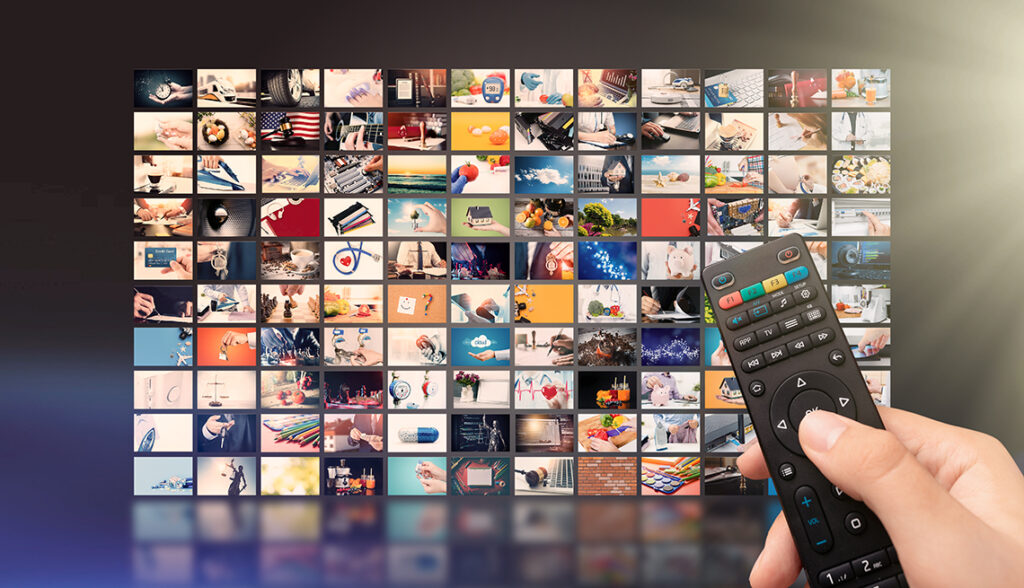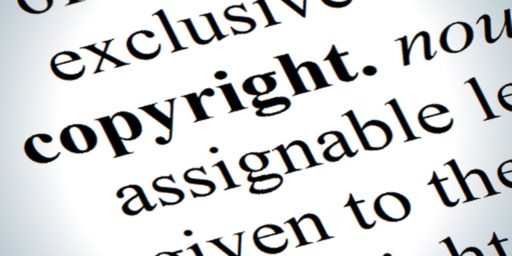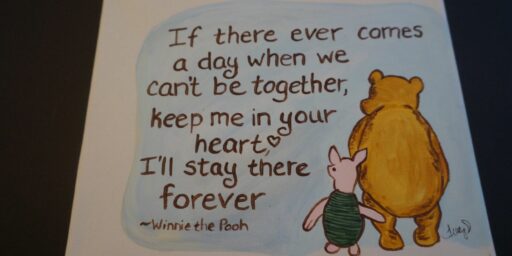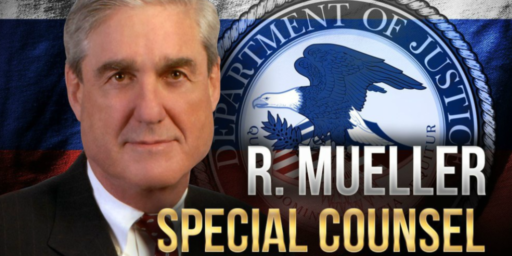The Ever-Shifting Media Landscape
BuzzFeed, Disney, and others are making big cuts.

The surprise shuttering of BuzzFeed News has drawn considerable commentary.
The Nation‘s Maria Bustillos contends “BuzzFeed’s Epic Fail Is Bad News.”
A new understanding of mass media can be seen unfolding, day by day, on BuzzFeed.com’s homepage over the years; its whole trajectory is available for examination at the Wayback Machine. Before the launch of BuzzFeed News in 2012, virality was all, and no consideration of taste or public interest prevented the headline “Bristol Palin Lost Virginity While Drunk on Wine Coolers” from topping the charts in 2011, alongside sponcon from KFC and a bald Lady Gaga singing “Hair.” By 2013, though, the homepage stories concerned Russian anti-LGBT law enforcement at the upcoming Olympics, Nevada Senator Harry Reid telling the Senate to “Sit Down and Shut Up,” and “Cleveland Kidnapper Sentenced to 1,000 Years”—all of them right next door to “25 Ways to Up Your Ponytail Game.”
Unpredictably, this interactive and shareable world of listicles, recipes, and quizzes had put serious investigative reporting into an electrifying new context. Readers found that the people behind the bylines, whom they’d come to like and trust, were liable to have more interesting and more relatable perspectives on, say, the wild allegations of the Steele Dossier than anything they might find in the well-mannered pages of The New York Times or The Washington Post. For many younger readers, news itself now means something different, something more elastic, more intimate, and less distantly institutional, because of BuzzFeed. In a riveting piece at The Atlantic last Thursday, Smith described his adoption, back then, of this new approach: “I found that I could drive the political conversation simply by telling my readers what I knew in plain English, when I knew it.”
So who brings you the news—who should bring it your way, and how? Alongside Gawker and its contemporaries, like Deadspin, The Awl, Splitsider, The Hairpin, and The Toast, BuzzFeed News perfected that now-familiar style of Internet storytelling, based in connection between journalists and their public. But media magnates have never been at ease with developing assets they cannot fully control. When a publication’s real allegiance is to its readers—when journalism is a matter of public trust first, and a product second—commercial interests are liable to find reasons why it’s not sustainable, not profitable, no longer worth risking millions in capital, and put the kibosh on it.
The ups and downs of this demented roller coaster have accelerated over the years, as new media businesses were deluged in gold, embarked on insane expansion plans, leased wildly expensive real estate, and then almost as suddenly crashed, yanking the Aeron chairs right out from under another few hundreds or thousands of hapless media professionals.
There’s been no shortage of can’t-stop-won’t-stop tech triumphalists, from Peretti to Jeff Bezos to Elon Musk to Marc Andreessen, and each will have his own reckoning, in time. The larger issue raised by the closing of BuzzFeed News is what readers stand, increasingly, to lose. For all of BuzzFeed’s idiosyncrasies, or even its faults, one of the things its news division represented was a corralling of resources to get the facts and bring them to the public. As former BuzzFeed tech editor Charlie Warzel wrote last week, “The business of news gathering—not content creation—is expensive, and it does not scale.” With rare exceptions, like the magazine you’re now reading, honest, clear and transparent journalism that is built for readers, rather than corporate shareholders, is in short supply. The method of funding it needs to change, and drastically.
Public and private companies are very different animals, subject to different pressures and imperatives. Once a company goes public, it must show growth and hit its marks, or face a declining stock price that will render it vulnerable to a takeover. So we hear, again and again, the same story of how shareholder demands for profits led directly to a media company’s being stripped for parts, as told by the firms that still chose to drink from the poisoned chalice of capital. Who cares if BuzzFeed News won a Pulitzer for its coverage of China’s mass detention of Muslims, a National Press Foundation award for its investigation of private psychiatric hospitals, an Ellie for revealing abuses in the US guest worker program, or a Polk Award for its exposé of a Chicago police detective who framed at least 51 people for murder? Shareholder pressure to shutter BuzzFeed’s news division was reported more than a year ago, prompting layoffs and departures that included newsroom leader Mark Schoofs, who’d been at the helm for less than two years.
[…]
The future of press freedom still lies to some degree in the hands of rich men like Peretti, Bezos, Zuckerberg, Musk, and Andreessen, and that leaves readers at the mercy of their willingness to let journalists do their jobs—which history has already shown us they likely won’t. As the demise of BuzzFeed News reminds us once again, it’s very easy to imagine such men asking themselves why they should be funding journalistic outlets that barely break even and are staffed with the kind of renegades who are principled enough to bite the hand that feeds them. They might ask themselves, who needs this? The answer is, we all do.
The Atlantic‘s Charlie Warzel, an alumnus of BuzzFeed News, proclaimed “The Internet of the 2010s Ended Today.” After some anecdotes of what it was like to work there during its heyday, he observes,
One can attribute the site’s cultural relevance, the industry enthusiasm around the work, and even the rivalries and haters to BuzzFeed News’s unofficial mission: to report on the internet like it was a real place, and to tell stories in the honest, casual tone of the web. At the time I joined, this was, if not a new kind of journalism, certainly an updated model for seeking out stories—one that’s now been fully absorbed by the mainstream. At its simplest, it might have meant mining a viral tweet or Reddit thread for ideas, but more often than not, it meant bearing witness to the joy, chaos, and horrors that would pour across our timelines every day and using them as a starting point for real reporting. It meant realizing, as I and my colleagues did, during the on- and offline manhunt for the Boston Marathon bombers, that a new culture of internet vigilantism was beginning to take hold in digital communities and that the media no longer unilaterally shaped broad news narratives.
Reporting on the internet like it was a real place led some of my colleagues to peer around corners of our politics and culture. In 2015, Joseph Bernstein outlined the way that “various reactionary forces have coalesced into a larger, coherent counterculture”—a phenomenon bubbling up in message boards such as 4chan that he called a “Chanterculture.” To read the piece now is to see the following half decade—reactionary MAGA politics, Trump’s troll armies, our current digital culture warring—laid out plainly. The Chanterculture story is a BuzzFeed News archetype: Movements like this weren’t hard to see if you were spending time in these communities and taking the people in them seriously. Most news organizations, however, weren’t doing that.
People afflicted with Business School Brain who didn’t understand BuzzFeed News (including one of the company’s lead investors) often described it like a tech start-up. This was true only in the sense that the company had an amazing, dynamic publishing platform—a content-management system that updated almost daily with new features based on writer input. But the secret behind BuzzFeed News had nothing to do with technology (or even moving fast). The secret was cultural. Despite the site’s constant bad reputation as a click farm, I was never once told to chase traffic. No editor ever discussed referrals or clicks. The emphasis was on doing the old-fashioned thing: finding an original story that told people something new, held people to account, or simply delighted. The traffic would come.
[…]
The business of news gathering—not content creation—is expensive, and it does not scale. BuzzFeed News’s bread and butter—telling the internet’s stories and leveraging its systems to promote them—was only nominally a technology strategy, and one that was yoked to the success of other venture-funded social-media companies, including Facebook. The fate of the entire digital-media ecosystem was dependent on the line going up and to the right in perpetuity—or at least until the moneymen saw their returns. Just how infectious was this “perpetual growth” mindset? In the mid-2010s, BuzzFeed turned down a rumored $500 million acquisition offer from Disney, perhaps in part because it wanted to become Disney.
Around the time I left in 2019, it became clear that browsing and attention habits were shifting, turning places like Facebook into ghost towns for politically radicalized Boomers. This was the first time I heard internal rumblings of investor concern. I started hearing people whisper the word profitability—a term I’d never had occasion to hear around the office—a lot more. It took less than four years to fully internalize the lesson that venture capitalism is just a form of gambling: You invest in 10 companies to make money off one, and employees are the chips. News, no matter how much technology you wrap around it, may be a public good, but if you’re looking for Facebook-level exits, it’s a bad bet.
The thing is that the news business, in the United States at least, has always been a business. While there was a relatively brief period starting in the late 1960s when we subsidized the Corporation for Public Broadcasting, which supports PBS and NPR, fairly heavily, everything from the local newspaper to the nightly network news is supported by some combination of advertising, subscriptions, contributions, and the vanity of rich owners. Over-the-air broadcasters, which depend on FCC licensing, are required to air a certain percentage of “public interest” programming, so tend to treat news as a business expense, but relatively few non-geriatrics still watch given so many alternatives.
While I understand why The Nation would resent quality reporting being at the mercy of the whims of playboy financiers, it has almost always been the case. That’s especially true of political reporting, opinion journalism, and the like for which the audience is small and, because the products are relatively undifferentiated, unwilling to pay what it costs to produce.
Further, the media environment constantly changes. There was a brief moment when blogs, including this one, were money-making concerns because we were The Cool New Thing and advertisers were scrambling to market to our readers. It didn’t take long at all for that to change, both because readers tended not to click through the ads (if they were seeing them at all, given the proliferation of ad blockers) and because Twitter, Facebook, and other venues cannibalized the readership.
Another story making the rounds today further illustrates this: Disney is laying off thousands of people, including yet another round of ESPN staffers and high-priced contributors like FiveThirtyEight’s Nate Silver. For years, it seemed like ESPN had a license to print money because it was the indispensable channel that cable and satellite companies had to offer. With the great unbundling driven by the rush to streaming, that model collapsed and ESPN has been laying off talent in droves year after year.
And the streaming companies themselves, including Disney+, have found that there are too many of them competing for the same subscribers. After years of frenzied competition to create original content, many of them are cutting back—going so far as to shelve programs that they’ve paid millions to create without airing them.
All of this is frustrating for talent and consumers alike. But damned if I know what to do about it. There’s simply more content being produced than we have the time to consume and there’s only so much money to go around.






When streamers began to proliferate, I predicted eventually there’d be some consolidation. It hasn’t happened yet, but it is bound to.
Suppose HBO, Disney, and Paramount (coincidentally the totality of my current services) were to consolidate into a DC/Marvel/Star Wars Trek* behemoth with plenty of the usual comedies and dramas and children’s programming and tons of movies. Each partner could scale back in original content, while keeping a share of subscribers locked in, so long as enough new stuff comes out weekly.
As I recall, Netflix began streaming mostly movies, plus some TV shows that were off the air when they paid a license for them. Their own shows and movies came later. then came competition from other services.
Now, until about 2018, I considered streaming an addition to TV. Something to put on when I wanted to see a movie, maybe a bit on the weekend to binge a show. But then the programming I could get on cable began to change to stuff I didn’t care for (lots of “reality” shows, for one thing), and I began to rely more and more on streaming for things to watch, be they new releases or old favorites.
These days I pretty much tune in to cable only for news (BBC and CNN mostly), NFL, and hopefully something interesting on one of the Discovery channels (any iteration of Mythbusters, How It’s Made, How Do they Do It?, and such). everything else I watch is streamed.
*Not to be confused with the Star Trek Wars.
@Kathy: One might expect anti-trust pushback from the feds if that sort of behemoth were proposed but it makes a lot of sense. As it is, even things like the NFL are going to be disaggregated into various linear (“over-the-air”) networks and streaming services (Amazon and YouTube at the very least). That’s going to be expensive and frustrating.
Until someone comes up with a workable ‘token’ payment system, internet based news/analysis/opinion sites will never be profitable, beyond a handful of major, well established players that got their start in the pre-internet age. Advertising revenue won’t pay the bills and how many subscriptions will one person pay for?
It should be noted that this is because a tax provision created to protect company for things like a factory getting destroyed in a natural disaster is being used in situations where a company is deliberately destroying its own property. This practice really needs to be banned.
@Sleeping Dog:
Rather than take small payments per story, perhaps a newspaper or magazine could sell $10 worth of “story tickets”, where they’d deduct $0.25 or whatever per story read. Or get some kind of aggregator to do it for them. The latter could sell story tickets for multiple publications.
This seems so obvious, that I have to assume it’s been proposed and rejected, or even tried and shown not to work well enough (or at all).
Streamers could do the same, with higher prices, for movies and TV shows or even individual eps. Amazon does sell and rent movies through its Prime Video service. I actually bought All The President’s Men a couple of years ago. It’s till there and available, even if I’m not subscribed to Amazon Prime.
I think this week I should rent or buy Logan’s Run and/or Soylent Green.
So many journalists pined for the end of capitalism and now lament the return to pre-capitalistic days, at least for journalists.
I think the fundamental problem is that not enough people are interested enough in news, as such, to pay for it.
The big media operations have not quite understood that. Newspapers made bank on the comics and the classified ads. It was bundling in a different age. And yeah, I read or at least scanned all the news articles. But that made me unusual.
I think the subscription model is probably what’s going to win. I also think that there will be news consolidation. In the day of physical newspapers, it made a lot more sense for each city to have its own news operation, print the papers every night, and distribute them around town in the morning (or afternoon for some papers). That doesn’t make any sense any more, and so we will see a lot of consolidation.
This is particularly bad for local/regional news. To me, though, that doesn’t mean it can’t work, but it needs to be scaled back enormously.
The problem is that historically publications real writers admire either barely squeaked by or were subsidized by rich people. And a successful magazine like The New Yorker became successful because of the care its editors took in developing writers.
None of this works when you are pivoting to video or dreaming of being the next Politico.
While the news was always add supported their were laws in place that put a firewall between the News division and management \ sales. Additionally the news programs were mandated by law and for the longest time network news programs were mandated under the public service requirement of the over the air broadcasting. This of course is not the case with cable news. I am also not sure any of this is in place after the communications act update in the 90’s.
The point is that other than, for example, situations like pulling airline ads after a crash or other similar rules that were “neutral”, news directors jealously guarded this autonomy. Also this was a rule at the network level. Local news have to provide “public service” as well but they can and did make money for the station. Now broadcast news at the network level has to make money as well. Another fun fact, even now when cable and broadcast news audiences skew very old, the audience of even weak preforming network news shows still attract significantly larger numbers then top rated cable opinion shows. The difference is that these shows are rebroadcast over services like You Tube which gives them exposure to a somewhat younger demo, abet in a truncated fashion.
In any case there is very little “straight news” anymore, it’s mostly opinion. FOX, PBS, and CNN do have some straight news but it’s a small part of what they do.
@Kathy: The sort of consolidation I’m seeing so far is that places like Hulu, Roku, and Peacock are becoming consolidators–trying to become the one place you have to go to link to wherever else you want to go. I can subscribe to 15 or 20 other “premium channels” via Roku, Peacock, or Hulu, with convenient one-stop billing for all of it.
I don’t subscribe to any, of course, but only because I grew up with free TV–my parents were late cable adopters, only really turning to cable after they’d both retired and needed to have more familiar stuff to watch (Matlock and Columbo reruns on A&E for example). Pay money to watch TV? Only to the extent that I can’t avoid it. I think my current streaming (exclusive of internet connection costs) bill is $7 0r 8/month. Not “needing” Sunday Ticket, HBO, Showtime, Starz, Netflix, and all the various “+”s keeps costs in check. The only downside is that when all y’all’re talking about Disco, The Mandalorian, or Picard, I have no idea of what you’re talking about. Somehow, I survive.
@Sleeping Dog: If it helps you understand–and I doubt that it will–I pay more for magazine subscriptions on a pro-rated monthly basis than I do for streaming charges. Not a lot, I’m a slow reader and cancelled one that went online only.
@Kathy: “I think this week I should rent or buy Logan’s Run and/or Soylent Green.”
Every time I look at renting a movie from Fandango or some other service I end up saying to myself “You want to charge me how much to watch an old movie? Get real!” Needless to say, I haven’t streamed a movie in a while (and it was a free one at that). This again, is probably part of having become used to watching movies for free on broadcast TV most of my early life. (I’m not positive, but I think my first cable subscription was in 1979 or 80* when our condo board decided that the community antenna the builder had installed was not good enough.)
*Born in 1952. My grandparents in Cle Elum were the family’s first cable subscribers back in the 60s sometime. They would invite their neighbors over to watch Lawrence Welk and a show called Polka-Go-Round on the weekends.
@JKB: “So many journalists pined for the end of capitalism and now lament the return to pre-capitalistic days, at least for journalists.”
What da f*** you talkin’ ’bout, Willis?
@JKB: And while I’m here, in “pre-capitalist” times (and most of early capitalism for that matter) the penniless man struck with an urge to write usually had to teach himself how to even before finding a patron. Mises should stick to commenting on the faults of Weimar Republic economics.
An overproduction of services will result in a culling. The “news” is not immune to market segmentation, especially with the “news” evolution toward specifically serving niche audiences, including those with distinct ideological views. For example, if you’re a liberal ideologue, you watch MSNBC, if you’re conservative ideologue, you watch Fox. These are companies that are deliberately catering to niche markets (ie. audiences). One of the underreported stories from the Fox Dominion lawsuit is that part of the reason Fox was so eager to please it’s audience and lie to them to tell them what they wanted to hear was due to fear of losing that audience to OANN and other outlets competing in the right-wing “news” niche. So their perverse and ultimately counter-productive actions were, in part, driven by actual market forces.
With Buzzfeed, they simply couldn’t effectively compete in their niche anymore. The death of most blogs and paid blogging (which I’m still sad about) was also market driven as people turned to social media, although Substack is a model that seems to be working for some.
In recent years, Walmart – long the low-price retail leader – has faced stiff competition from the dollar stores and has had to adjust.
There is nothing to be done about it, this is the inherent nature of competition.
@Just nutha ignint cracker:
Amazon does that kind of consolidation, I think Apple as well.
It may be a first step, or it may be inconsequential. The type of consolidation I described, may only come about as parent companies get tired of losing money on streaming. That will be after they out ads on all programming and jack up prices for ad-free subscriptions.
That’s the Wil Wheaton Principle: It’s only a movie/TV show. Whether it’s awful or the greatest ever, your life will go on as it did before.
Except for Severance (maybe).
@Kathy: You may be pleased to know that Discovery Channel’s streaming service is merging with HBO Max, to create Max. Now you will have less reason to watch cable.
I think it’s the first little bit of a much needed consolidation. It won’t get to your massive behemoth level, but I don’t see how things like Paramount’s Star Trek Plus survive on their own, especially when they offer an obvious balance to Disney’s Star Wars.
I expect three major streaming things in the end. Which three? I don’t know, one will be Disney though.
@Kathy: Just a note that Fox News makes its money off of carriage fees (currently about $2 per cable subscriber per month though they are trying to get it over $3 in current negotiations with cable providers) not so much advertising. So one is subsidizing Fox News if one is a cable subscriber. We ended up canceling our cable subscription because we didn’t watch most of it AND we didn’t want to subsidize Fox News.
We took some of the money we had been paying Xfinity to add Apple TV+ and a Disney/Hulu bundle. Still came out way ahead.
@Kathy: “ That’s the Wil Wheaton Principle: It’s only a movie/TV show. Whether it’s awful or the greatest ever, your life will go on as it did before.”
Didn’t Wil Wheaton get pretty screwed up by Star Trek? Kid struggling with depression, anxiety and alienation plays character hated by the fans?
He seems to be doing better now, and has been very open about his mental health issues, trying to destigmatize them and encourage people to get help, which is pretty awesome of him.
@Gustopher:
I thought so, too, at first. But it turns out, for now, Discovery+ will remain separate, and the new Max (not the one grounded by the FAA) will likely get the lower rated crap from Discovery.
We’ll see. Things may change once the revamped service goes into effect.
@Gustopher:
The one thing I miss about social media is Wil’s posts.
@Gustopher: I read a lot of what Wil Wheaton writes, and I seriously doubt he would account TNG as a negative in his life. Yeah, he’s mad about the audience reaction to Wesley. AND, the other cast members really bonded together, and gave Wil the kind of support he didn’t get from his parents. Jonathan Frakes and Michael Dorn stand out in the stories Wil tells. But really it was all of them.
What Wil is saying these days is that it was his parents that bear the most responsibility for making his difficulties worse.
@JKB: “So many journalists pined for the end of capitalism and now lament the return to pre-capitalistic days, at least for journalists.”
Wow, that would be really ironic if there were any truth to your predicate. But of course, you’re just repeating bigoted lies spread by right wing hacks, so instead of biting irony there is only the usual sludge.
@Jay L Gischer:
From what I see Food and Style pull more clicks than the news for NYT online. Critics say if newspapers understood their business it would have been nytlist, not craigslist.
As oft noted here, we at OTB are weird. We obsess about politics. Most people, quite sensibly, don’t. I’ve said we’d live in a very different country if the average middle age white guy took a quarter of the time he spends following sports and read political news. Kind of a shame. The press treat politics as a sport and who won the House last November matters. Who won the Super Bowl in February got a lot more eyeballs, but doesn’t actually.
@Just nutha ignint cracker: “This again, is probably part of having become used to watching movies for free on broadcast TV most of my early life.”
But of course, you weren’t watching for free. You were paying by enduring many minutes of commercials per hour. If that’s a trade-off that works for you, then great. But don’t think this is free just because it isn’t taking your cash.
@Jay L Gischer: I cast Wil Wheaton in an episode once. Lovely kid, everybody liked him.
@Gustopher: I am looking forward to the merging of Discovery + and HBO Max. We pay for D+ but not HBO Max. (HGTV and all those renovation shows are like background music in our house, that are on while cooking and cleaning). It looks like for a few bucks more I can get HBO Max which I was mapping out for a short term binging. Supposedly it will be on May 13th.
@Andy: I have cut the cable so I don’t get MSNBC, Fox, or CNN. However, I’ve downloaded apps to my Fire Stick from CBSNews.com, ABC, NBC, PBS, Al-Jazeera, Sky, Deutche-Weller, NHK, local stations, and a news video clip service called Haymarket News. I get all the news I want when I want it and don’t have to listen to opinion. I find CBSnews.com to be most like CNN of old: hosted 30 minute news updated regularly plus an hour of John Dickerson hosting a news roundup at night.
@Scott:
We cut the cord about a decade ago. I rarely watch TV at all anymore, much less TV news, unless something is breaking. I’ve long preferred France24 in English and Al Jazeerah, which do a much better job of the stuff I’m interested in, which are global affairs. Their coverage of what is going on in the US domestically is decidedly different from most domestic outlets. But probably 95% of my news comes from reading.
@wr: Time watching television has no opportunity cost to me in that I watch for escape primarily. Ads are just as entertaining/informative as content and the time spent watching them has no pecuniary value. So watching 30 seconds of commercial content a few times an hour (ETA: my current situation for most shows) is less economically burdensome than paying $10/month. YM clearly varies.
ETA: I should also add that mostly I’m watching relatively old to ancient television shows on outlets like Tubi and Roku so there’s not a lot of advertising to begin with. For example, most episodes I watch of Peter Gunn and Yancy Derringer have no commercial interruptions at all.
An alternative to consolidation would be for a major streamer to give up and license their content to other services. I understand this was common practice when Netflix pretty much was the only streaming service.
Yet another is through acquisitions. Amazon, say, might buy Paramount, getting all the Trek content, plus other TV shows and movies.
Too much consolidation isn’t good. We’ve seen its effect in other industries. like when one big producer has problems, formula vanishes from store shelves for weeks. So we want more than two or three BIG streaming services.
I’m not sure whether too little consolidation is also a bad thing.